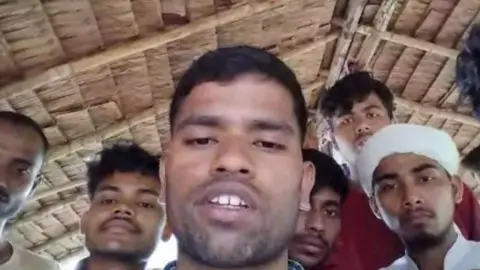India is grappling with a severe health crisis as access to effective antibiotics diminishes, while drug-resistant superbugs, notably carbapenem-resistant Gram-negative (CRGN) bacteria, continue to thrive. A recent study conducted by the Global Antibiotic Research and Development Partnership (GARDP) examined antibiotic availability for approximately 1.5 million cases of CRGN infections across several countries, showing that merely 6.9% of patients received adequate treatment. Disturbingly, India accounted for the vast majority of these cases, with its health system managing to treat only 7.8% of patients.
Commonly found in various environments, CRGN bacteria lead to infections such as urinary tract infections, pneumonia, and food poisoning. They represent a significant threat to vulnerable populations such as newborns and the elderly and pose particular challenges in hospitals, where they can spread rapidly and are often resistant to the strongest antibiotics available. Dr. Abdul Gaffar, an infectious disease specialist, highlighted the alarming trend of patients succumbing to infections that no antibiotic can treat.
Despite global calls to reduce antibiotic overuse, a harsh reality exists in low- and middle-income countries where treatment remains inaccessible. GARDP’s Global Access Director, Dr. Jennifer Cohn, pointed out that while the narrative focuses on overuse, many patients are not receiving the antibiotics required for their conditions.
The GARDP study evaluated eight intravenous antibiotics effective against carbapenem-resistant bacteria, revealing significant shortfalls in treatment availability across these nations. Barriers preventing access include navigating healthcare systems, securing correct diagnoses, and affording the costly medications. Dr. Gaffar emphasizes the differing fates of those who can access necessary treatment versus those who cannot.
To bridge the treatment gap, experts advocate for affordable drug pricing and enhanced regulatory frameworks to prevent misuse. They propose that antibiotic prescriptions in hospitals should necessitate oversight from infection specialists. Addressing both access and misuse demands improved healthcare policies and stronger safeguards regarding antibiotic distribution and utilization.
Furthermore, the global pipeline for new antibiotics is diminishing, exacerbating the problem. Given India's role as a leading market for new drugs and its burgeoning pharmaceutical sector, experts believe the nation holds potential in combating antimicrobial resistance domestically and globally. By generating local data and employing collaborative procurement strategies, India can significantly enhance its response to the antibiotic crisis.
Ultimately, ensuring access to effective antibiotics is critical for sustaining modern medicine, enabling safe surgical procedures, managing cancer treatment complications, and effectively tackling routine infections. The balance of wise antibiotic use and ensuring that medications reach those in desperate need is a complex but essential challenge facing the healthcare landscape today.






















